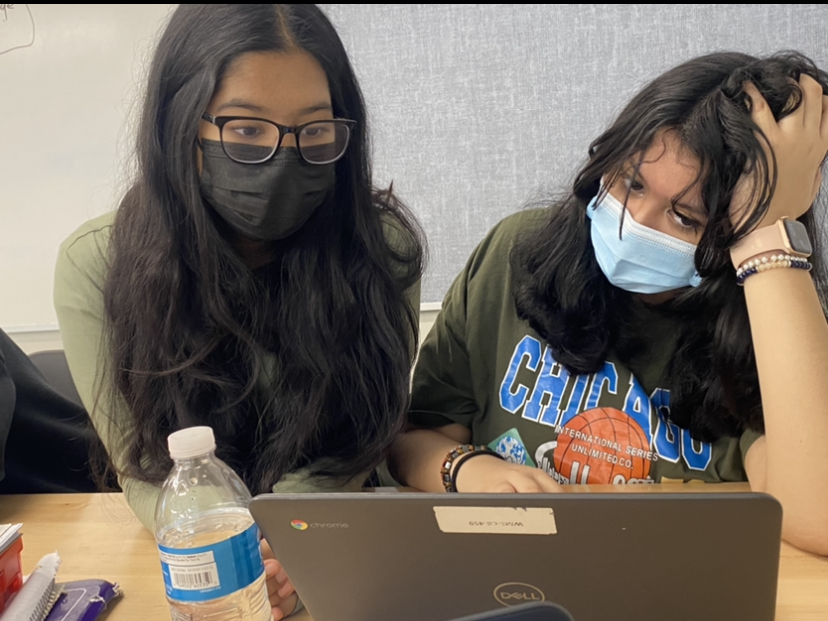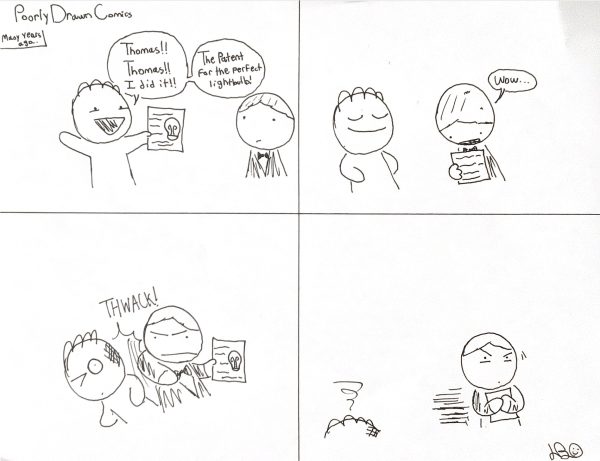Overworking Students
GIVE STUDENTS A BREAK: Student lacks focus on schoolwork after hours of working.
May 26, 2022
Should students get breaks? Is homework necessarily fair after 7 hours of school? These are two questions that haven’t been answered ever since I can remember. To answer these questions, I interviewed the students and teachers at WMS about their opinion and point of view on homework and class breaks to reduce the chances of stress.
Typically, students go to school for 7 hours with 3-minute breaks between classes to get their stuff ready to go straight to their next class. The only break we get throughout those 7 hours is a lunch break that is only 35 minutes long. After school, we are expected to go home and do our homework.
We only have a little time for ourselves until we need to go to sleep to get enough rest to repeat what we just did all over again. We follow this same schedule 5 days a week.
I asked a student-athlete, Quameerah Anderson, to give me her opinion on these two topics. She explained that after practice she seems to “never have time” to do the homework that her teachers give her. She said she feels it’s not fair to give homework because the fact is “we already do 7 hours of work in school.” She agreed that 3-minute breaks per class help her a lot to keep her mind at ease.
Lily Hickok explained that she finds school stressful because of people making her feel bad about herself and how much homework her teachers assign to her. Although Hickok said homework is not “that bad”, she feels like homework takes a lot of time from doing things she enjoys doing.
Breaks have been proven to also improve student skills. For example, the Edutopia article “Research Tested Benefits of Breaks” touches on this topic, “Longer breaks—such as recess or playtime—provide opportunities for children to learn important life skills. Research shows that when children play together, they learn how to take turns, resolve conflicts, and solve problems.”
In the article “The 5 Benefits of Taking Breaks” the author states, “It is very common to feel drained of energy when we focus all our attention on one task.” I agree with this statement for the reason that, for example, if you are sitting at your desk at home working on the same math homework for hours, you are going to feel worn out.
I interviewed a teacher to see what he feels about homework and stress in students. Mr. Guidetti, unlike a lot of teachers, informed me that he doesn’t mind if students listen to music because, like others, he likes to listen to music while working. Mr. Guidetti only assigns homework when necessary or when it’s unfinished work from class.
Every student gave me similar responses that all concluded that homework isn’t appropriate and fair and that school takes a toll on their stress level. Although we cannot eliminate school, we can find solutions to decrease the stress on the students. Mostly every student I talked to told me that listening to music helps them concentrate on school work better.
Ways teachers and students can take productive breaks to avoid kids being out of control is stretching. Our body needs to stretch after sitting for 6 hours in a row. The importance of stretching
Another thing you can do is play silent ball. This is more of an activity, but it gets people pumped up and back into their learning mindset, according to Nathan Cobbah.
An article I read informed me that breaks are an essential part of learning and also stated that “breaks keep our brain healthy.” Awareness and action need to be taken to realize that homework stresses us students causing us to feel overwhelmed and overworked and that breaks can have a big impact for the better for us students.





